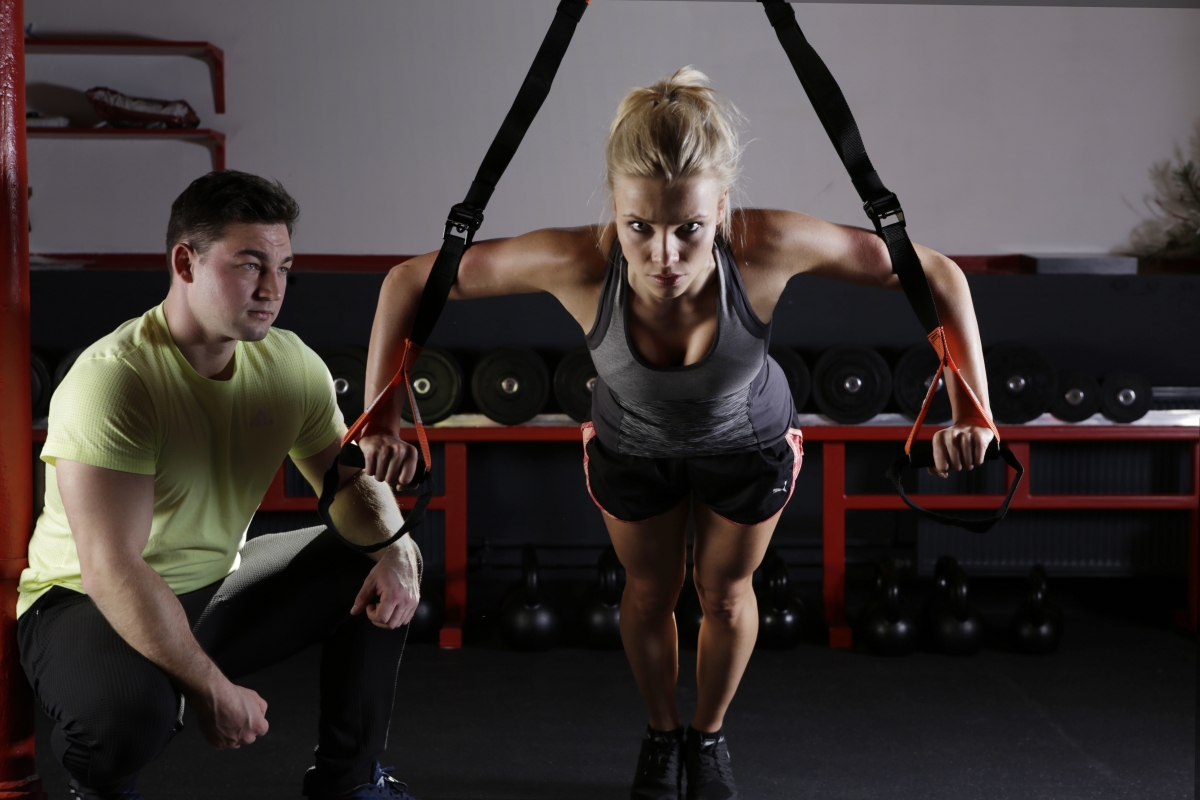How to get into shape like the Hulk
Do you want to get into shape but find it hard to carry out your good intentions? The Hulk can help you!
After summer vacation, chances are you are trying to get back into shape. Your goals may include fitting into your pants again, training for a 5k in the winter, or improving your overall physical strength and endurance. Each day you try to start off with a proper breakfast and intend to do a workout session in the evening. However, by the time you come home from work, bad habits kick in and you start craving snacks and some peace and quiet. Does this mean you will never reach your personal health goals? According to psychologists, the secret for sticking with your good intentions may be found in the observation that some people seem to be more successful at achieving their health-related goals than others[1].
Health psychologists commonly describe two interacting processes when explaining our behavior[2]. Let’s take superhero The Incredible Hulk as an example of this dual-systems account. The two competing alter egos Dr. Bruce Banner and the Hulk couldn’t be more different. Dr. Banner can be perceived as an intellectual and reflective person with good intentions that help him realize his goals. The Hulk, on the other hand, seems rather mindless and acts impulsively. The green character just can’t help himself and makes a habit out of destructing everything he sees. But in the end, the Marvel stories always tell us that it is the interplay between Dr. Banner and the Hulk that determines outcomes. This is quite similar to how behavior takes place in real life: as an interplay between reflective and impulsive processes.
Research suggests that it takes effort to have our reflective system use self-control to regulate our impulses all the time, especially when fatigue and hunger kick in[3]. Our self-control is thought to be prone to failure as we are continuously being confronted with temptations such as an ice-cold beer in the afternoon or a night of gaming, keeping us away from our healthy goals. In terms of our superhero metaphor, imagine that Dr. Banner is somewhat depleted or fatigued after working all day in the laboratory. It would become more difficult for him to contain the Hulk when faced with a new challenge[4]. Similarly, you are likely familiar with your inner Hulk after a hard day of work. You give into temptation binge eating chips on the couch instead of going to the gym. There are certainly people who seem to be very much able to translate their intentions into behavior—and perhaps you are one of them. But how do these people achieve their goals without draining their self-control resources?
Based on a comprehensive meta-analysis of studies on self-control, researchers found evidence to suggest that people who usually show more self-control are in fact better at automatically doing the ‘right thing’[5]. Crucially, automatized behaviors are thought to occur without effort and deliberation, and do not drain your self-control resources. So, it appears that if you are able to turn your workout or healthy snacking into automatic behaviors, it becomes easier and less effortful to continue these beneficial actions over time. Specifically, a habit is an automatized behavior that is formed after a behavior is repeatedly linked to a specific contextual cue[6] (e.g., going to the gym each time you leave work). The more often you repeat that behavior within a stable context, the stronger the underlying association between the context and your actions becomes, resulting in an automatized behavior that is called a habit. The authors of the meta-analysis indeed proposed that one reason why people with more self-control might be successful in attaining their goals is because they have more beneficial habits.
Looking further into this perspective on effortless self-control, Dutch scientists[7] examined whether exercise habit strength (i.e., the degree to which exercise occurs habitually) could be a top secret factor explaining how self-control results in more physical activity. A group of gym users filled in several questionnaires about their general level of self-control and their exercise habit strength. For example, habit strength was measured with self-report items concerning frequency and automaticity of exercising. The participants also reported the exact number of minutes spent on physical exercise over a one-week period and the number of times they had been working out during the past three months. The results revealed that people with high self-control indeed self-reported success in completing more physical activity. This association could be explained by the finding that people with higher levels of self-control have a stronger habit of exercising. In other words, people with higher self-control reported stronger exercise habits (i.e., perceiving their exercise behavior as something they did automatically), and stronger exercise habits in turn predicted more physical activity. Importantly, the findings were in line with a previous study in which researchers demonstrated that the relationship between self-control and healthy eating behavior was also explained by habit strength. Those with more self-control showed stronger automatized behaviors including the habit of eating of fruits, which in turn predicted more fruit intake[8].
These studies provide promising insight into the ways through which people with a high level of self-control can be successful in achieving their long-term health related goals. Instead of following bad impulses, people with high self-control can rely on their inner Hulk to do the right thing! Although the formation of healthy habits may initially require some effortful self-control, people with high self-control need fewer or even no resources to perform their healthy behavior once such habits are formed. However, people with less self-control may need some help in forming healthy habits. One way to promote desirable automatic behavior in people with low self-control is to optimize their environment. For instance, they could bring their sports equipment to work. A clear sight of a sports bag provides encouragement to automatically go exercise after work. With time, going to the gym will cost little effort and you will get into shape like the Hulk!
[1] Tangney, J. P., Baumeister, R. F., & Boone, A. L. (2004). High Self-Control Predicts Good Adjustment, Less Pathology, Better Grades, and Interpersonal Success. Journal of Personality, 72, 271-322. doi: 10.1111/j.0022-3506.2004.00263.x
[2] Hofmann, W., Friese, M., & Wiers, R. W. (2008). Impulsive versus reflective influences on health behavior: A theoretical framework and empirical review. Health Psychology Review, 2, 111-137. doi: 10.1080/17437190802617668
[3] Baumeister, R. F., Vohs, K. D., & Tice, D. M. (2007). The strength model of self-control. Current directions in psychological science, 16, 351-355. doi: 10.1111/j.1467-8721.2007.00534.x
[4] Muraven, M., & Baumeister, R. F. (2000). Self-regulation and depletion of limited resources: Does self-control resemble a muscle?. Psychological bulletin, 126, 247-259. doi: 10.1037/0033-2909.126.2.247
[5] De Ridder, D. T. D., Lensevelt-Mulders, G., Finkenauer, C., Stok, F. M., & Baumeister, R. (2012). Taking stock of self-control: A meta-analysis of how trait self-control relates to a wide range of behaviors. Personality and Social Psychology Review, 16, 76-99. doi: 10.1177/1088868311418749
[6] Gardner, B. (2015). A review and analysis of the use of ‘habit’ in understanding, predicting and influencing health-related behavior. Health Psychology Review, 9, 277-295. doi: 10.1080/17437199.2013.876238
[7] Gillebaart, M., & Adriaanse, M. A. (2017). Self-control predicts exercise behavior by force of habit, a conceptual replication of Adriaanse et al. (2014). Frontiers in Psychology, 8:190. doi: 10.3389/fpsyg.2017.00190
[8] Adriaanse, M. A., Kroese, F. M., Gillebaart, M., & De Ridder, D. T. (2014). Effortless inhibition: Habit mediates the relation between self-control and unhealthy snack consumption. Frontiers in psychology, 5, 444. doi:10.3389/fpsyg.2014.00444




